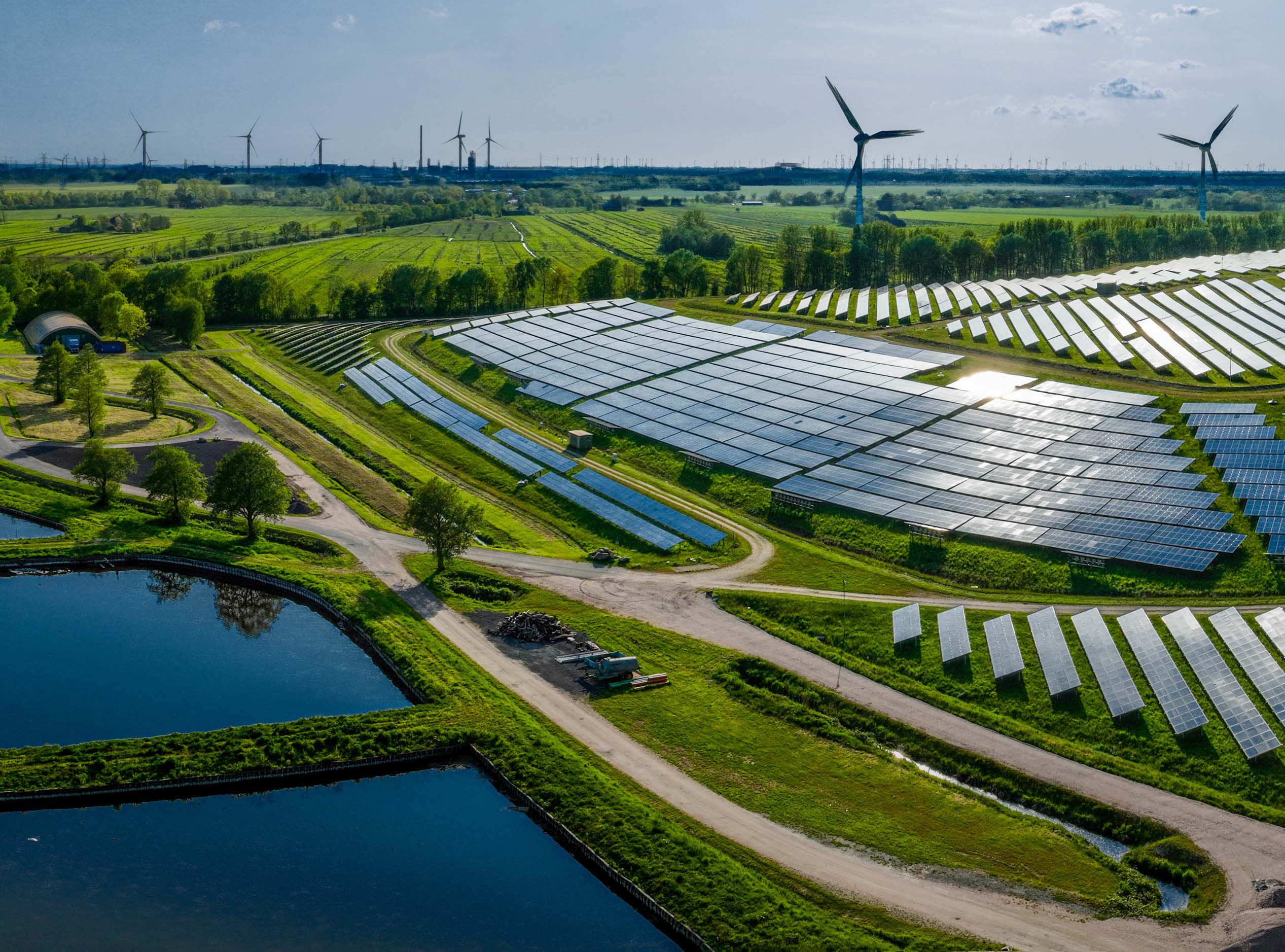Ensuring a safe, skilled and sustainable workforce.
We identify and fulfil the UK’s energy and utilities infrastructure needs through our strategy work in collaboration with industry stakeholders and member organisations.The ever changing skills landscape
The energy and utilities sector is experiencing a significant transformation, driven by a mix of technological advancements, shifting regulatory frameworks, and evolving consumer demands.
Below are the key trends and developments in this sector:
- Transition to Renewable Energy
- Decarbonisation and Net-Zero Targets
- Grid Modernisation
- Resilience and Climate Adaptation
- Electric Vehicles (EVs) and Charging Infrastructure
- Digitisation and Innovation
- Regulation and Policy Developments
- Investment Trends
- Energy Security and Geopolitical Factors
- Energy Efficiency and Demand Management
The energy and utilities sector is undergoing a dramatic shift as the world moves toward cleaner, more sustainable energy systems. While challenges related to energy security, grid modernisation, and the pace of technological adoption remain, the long-term outlook is increasingly focused on decarbonisation, innovation, and improved resilience.

Our Priorities
Attract and recruit diverse talent to improve upon the current position
We are delivering an effective collaborative sector attraction strategy to attract a greater number of diverse high-calibre candidates that wouldn’t normally consider a careers in energy and utilities.
We are supporting the development of sector level recruitment best practice to engage a greater number of diverse, high-calibre candidates including fully leveraging opportunities arising from the Net Zero transition.
Influence the development and delivery of a skills system that meets sector needs
We are delivering an effective advocacy as a credible stakeholder in the development of skills policy across all four nations.
We are establishing a cross-nation strategy for developing and delivering a standard-setting approach.
Convening industry and stakeholders to ensure the outcome of the skills system meets sector needs
We have developed the industry groups to consistently identify, articulate and validate skills needs.
Ensuring the standardisation and consistency of training outcomes across the UK
We are ensuring the outputs of the skills system address industry needs across the UK.
Our Work
Below, you will find an overview of our most recent progress and key achievements in alignment with the priorities outlined above.

Summary report on UK green jobs
We published a summary report on the Office for National Statistics’ latest estimates on green jobs from 2015 to 2020. Figures found that 526,000 people are employed in green industries. This is 4% higher than in 2015, but 4% lower than its 2018 peak of 545,000. Employment in renewable energy also grew by 10,000, driven primarily by offshore wind. Read our summary report.

Carbon Capture
We collaborated with government and industry stakeholders to develop clear plans for achieving net zero goals. In addition to our work on power networks, we led the Carbon Capture element within the CCUS workstream This involved defining roles, mapping skills pathways and developing standards and qualifications to support the growing CCUS industry and decarbonise thermal power generation. This initiative was aimed towards ensuring a skilled workforce to meet the UK’s environmental targets.

Maximum Funding for New Apprenticeship Standards
Three new apprenticeship standards, developed in consultation with industry, received the maximum funding allocation from the Institute for Apprenticeships and Technical Education (IfATE). Power Industry Cable Jointer – Distribution standard, Power Industry Overhead Linesperson, and Power Industry Substation Fitter standards all received the maximum funding band allocation of £27,000.

Occupational mapping
We are now prioritising occupational mapping, to identify skills gaps and development opportunities within the sector. This process will map career pathways, analyse labour market trends and inform workforce strategies, helping to ensure a skilled and sustainable workforce for the future. A Task and Finish Group is being formed to develop a proof-of-concept occupational map.

HoRizon roundtable discussions
HoRizon, our revitalised roundtable for HR Directors in the energy and utilities sector, in partnership with Network HR, allows senior HR leaders to collaborate and address critical workforce and skills challenges related to achieving net zero and environmental goals. The inaugural roundtable, chaired by Dan Forth of Certas Energy, took place in Birmingham earlier this year.

Hydrogen Skills Network Group and Gas Network Skills Forum
The National Skills Academy for Gas has launched two new groups, the Hydrogen Skills Network Group (HSNG) and the Gas Networks Skills Forum (GNSF), to address the evolving skills needs of the hydrogen industry and set the priorities for the gas industry. These groups will collaborate to ensure a sustainable and skilled workforce for the future, focusing on strategic priorities and long-term goals. They will work closely with the National Skills Academy for Gas Strategy Group and engage with external stakeholders.
Contact Us
If you would like to talk to us about how we can help explore current and upcoming challenges, and work to find solutions, please contact us using any of the methods below:
"*" indicates required fields
